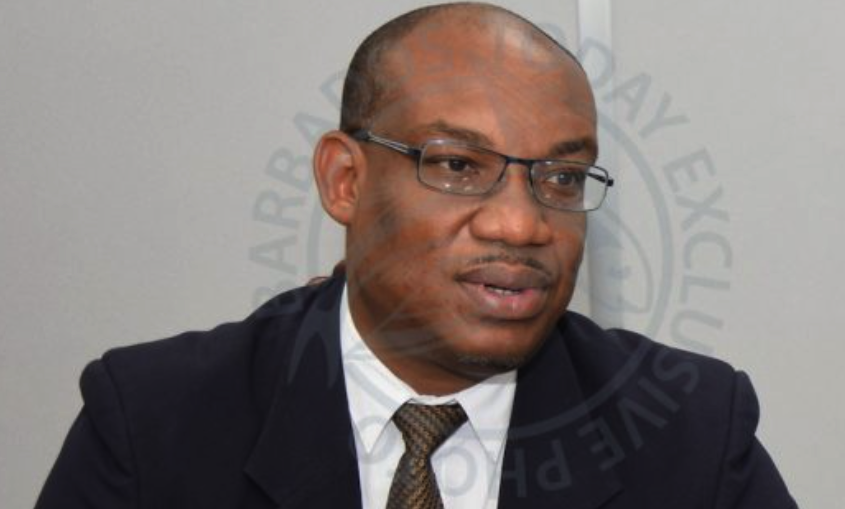Today’s national ash clean-up took a serious toll on the Barbados Water Authority’s (BWA) ability to supply the country with water.
As thousands of Barbadians tried to rid their homes, premises and vehicles of the ash dumped on the island by the La Soufriere volcano since Saturday, the overwhelming usage rate threatenedto destabilise the BWA’s water supply.
It led General Manager Keithroy Halliday to make a passionate plea to significantly reduce the amount of potable water being used or face the possibility of islandwide water outages.
Last night during a national address, Prime Minister Mia Mottley announced that a period of national cleaning would commence from today and would continue for as long as the ashfall threatened.
But while units from the Ministry of Transport and Works used non-potable water to clean roads and government buildings, Barbadians used thousands of gallons of potable water
to do their cleaning.
“If we keep on the current trajectory before the next hour or two we will be down by 50 per cent in our reservoirs and that is why we are cautioning and reaching out to everyone to please, to please, to please, only use potable water where necessary. The washing down of houses has to be carefully managed, the washing down of cars has to be similarly managed.
“We are asking everyone to use harvested water or non-potable water wherever they can but for the time being please allow us to be able to manage our water supply so that everyone can get some water, not only for today but for the next several days,” Halliday said to a national audience via VOB 92.9 radio.
“While the MTW would have engaged in a large cleanup measure in respect to the roads and a number of buildings, they are using non-potable water, they are not using potable water. What we are seeing en masse and on social media is people hooking up hoses to potable water and washing down the houses, the yards and premises and so on. Now if 50, 000 people are doing that then you can understand the kind of water drain that is happening as a result. It is not sustainable.
“In the situation that we have we will not possibly be able to get to everyone to replenish the current drain on water if the demand for water continues at the rate that we’re currently witnessing and that is why I needed to call in and caution all Barbadians and explain why several areas are experiencing the challenges that they are having,” he added.
Halliday said the effects of the high demand were being felt all over.
He said this was particularly so in those areas which were accustomed to experiencing water shortages and outages.
“We are experiencing it in most communities. We are experiencing it in the north, we are experiencing in the east as you would imagine. We are experiencing it in elevated areas, we are experiencing it in those areas that would generally have challenges where water supply is usually low or intermittent. If we continue then we are going to experience it in almost most dense communities where water supply is basically at the end of that particular distribution system,” Halliday explained.
“So those who live in the low-lying areas, they will continue to receive adequate water, but then what happens is that we still have those areas that are in higher elevation.”
Despite the seriousness of the situation, he said the BWA would not yet consider rationing water or shutting off water at various points.
“No we are not quite at that stage but what we are saying is that we need to make sure that we manage the water and the water supply and the replenishment of water and for us as a utility to be able to get our water tankers out to deal with those areas that are affected. We need to make sure that we at least see some ease in the traumatic demand that we are experiencing at the moment,” Halliday said.
He encouraged persons to use “muscle” to clean the ash by shoveling, rather than washing down the area with water every few hours. (randybennett@barbadostoday.bb)




